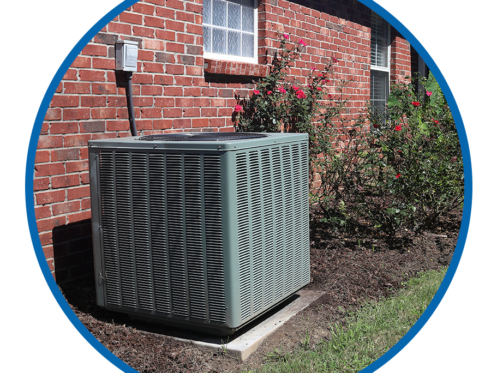High humidity levels are not only uncomfortable, but they also create a number of unpleasant effects. These effects include creating a suitable environment for the growth of mold and damage to wallpapers and paintworks. In addition, serious health issues like heat stroke and muscle cramps can be caused by high humidity levels in your house. High humidity levels in your home might be due to high humidity in the external surrounding in your house. AC units are designed to reduce the amount of humidity in your house. But why is your house humid despite having an air conditioner?
The following are eight reasons why your AC makes your house humid.
1. Air Leaks in the Air Ducts
If you realize that your house has become more humid than usual, the air duct in your AC unit might be the problem. This might be due to neglecting your air conditioner in general and hardly providing it with any maintenance services. This leads to air leakages, especially in the duct connection points.
You probably like keeping your windows open even when the air conditioning unit is on because you want more air from the outside to circulate in your house. Due to the leaks in your air ducts, the air from the outside is bound to leak into the AC air ducts. This is probably the cause of high humidity in your house because, for every 100 CFM of air leakage in your ductwork, almost 12 gallons of moisture is added to the atmosphere in your living space.
2. One Speed of the AC
If you are experiencing high humidity in your house, you might want to check if your AC unit has only one speed, the on and off speed option. This affects the efficiency of your AC unit. The AC will only run until the set temperature is reached, then it turns off. For example, if you set your temperature at 45 degrees, then the temperature rises to 46 degrees, the AC will function to raise the temperature by one degree and then go off.
This method of functionality does not necessarily reduce the humidity in the house but is majorly concentrated on regulating the temperature. That is why your house’s humidity levels remain high.
3. Low Refrigerant Charge
You may have purchased your AC unit with the hope that it will regulate and maintain the temperature and humidity levels in your Washington, St. Louis house at optimum levels. However, you may realize your living space still has uncomfortable high humidity levels. This is why you should consider getting professionals like the staff from Level 9 Heating, Cooling, and Plumbing to check the refrigerant charge in your AC.
You might be wondering why the refrigerant charge is important. When the refrigerant charge is low, the evaporator coil is directly affected. This makes it unable to condense water vapor properly and effectively. As a result, your AC unit will be unable to keep up with the task of extracting the humid air from your house, thus causing the humidity levels in your house to increase significantly.
4. Malfunctioning Evaporator Coils
Evaporator coils are very important components of an AC unit because they help regulate the humidity levels in your house. Evaporator coils usually have a lower temperature than the rest of the parts in an AC unit. This ensures they can efficiently condense the humidity in the air to make it liquid so that it is disposed of through the condensate pan. The liquid air exits the AC system through the condensate drain. When humidity levels in your house remain high, this may be a sign that the evaporator coils in your AC system are not fully functional.
One of the major signs of a malfunctioning evaporator coil is when its temperature does not get lower than the temperature around your house. This makes it impossible for an evaporator coil to regulate the humidity level of the air circulating in your home. In addition, your evaporator coils might be exposed to extremely low temperatures, which might have led to the development of frost on the evaporator coils. This may result in less humidity control.
5. The Size of Your AC
You may have a properly maintained AC unit, yet the humidity levels in your Washington, St. Louis home remain high. This may be due to having a relatively small AC system in regard to the size of your home. However, the AC size, in this case, refers to the cooling capacity of the AC and not its physical size. It is also possible that your AC size could be bigger than what your space requires. It takes about 15 minutes for a properly sized AC to start dehumidifying your space.
Large AC units are designed to turn on and off frequently after short periods. The time it stays on may not be enough to regulate the humid air in your home. This always results in very high levels of humidity. This is why you need proper professional advice before getting an AC to get the size that will be right for your space. Level 9 Heating, Cooling, and Plumbing has experienced HVAC technicians that can advise you on the correct AC size that can efficiently regulate the temperature and humidity in your Washington, St. Louis home.
6. Wrong Settings
The settings options in your AC unit contribute to normal or high humidity levels. The correct settings options will allow your AC unit to operate effectively. You might think that running the fan will help get rid of moisture in the air, but that may increase the humidity levels in your house. This is because as the fan moves the air without the AC running, it may lead to blowing back the moisture that the AC had removed back to the house.
7. Lack of Tune-up Services
There may be several reasons why your AC unit is malfunctioning. Professionals are always in a better position to detect the problem with your AC unit. AC tune-up services should be scheduled at least twice a year. This is the best way to reverse the high humidity levels you might be experiencing in your house. This is because AC tune-up services will ensure all the parts of your AC are functioning at their optimum capabilities. AC tune-up services are mostly directed towards parts of the AC linked to humidity control. They mainly involve checking the refrigerant charge and cleaning the evaporator coils and other essential parts of your AC unit. Lack of care for your AC is a major reason why your AC makes your house humid.
8. Old AC
An AC goes through wear and tear even if it is properly maintained. Aging is a common cause of inefficiency, which causes the AC unit to perform poorly. The evaporating coils may be worn out, thus hardly performing condensation. The air ducts may also develop holes, thus leading to AC leakage. That is why you may need to replace your AC unit and install a new one. This is because old AC units are inefficient in regulating the humidity levels in your house.
Contact the Professionals Today
It is very hard to determine the right AC that will control the humidity levels in your house. This is because there are several factors that need to be considered in regard to AC units to help maintain the right humidity levels in your house. The best thing to do is to hire an HVAC professional. If you are a resident of Washington, St Louis, or its surrounding, you can reach out to Level 9 Heating, Cooling, and Plumbing. The professionals from Level 9 Heating, Cooling, and Plumbing can help you find the right AC unit that will help keep your house at comfortable humidity levels. Level 9 Heating, Cooling, and Plumbing also provides repair, maintenance, and replacement services for your AC. We also offer a variety of heating services and various HVAC products.
Contact Level 9 Heating, Cooling, and Plumbing today for any queries about your air conditioner.



